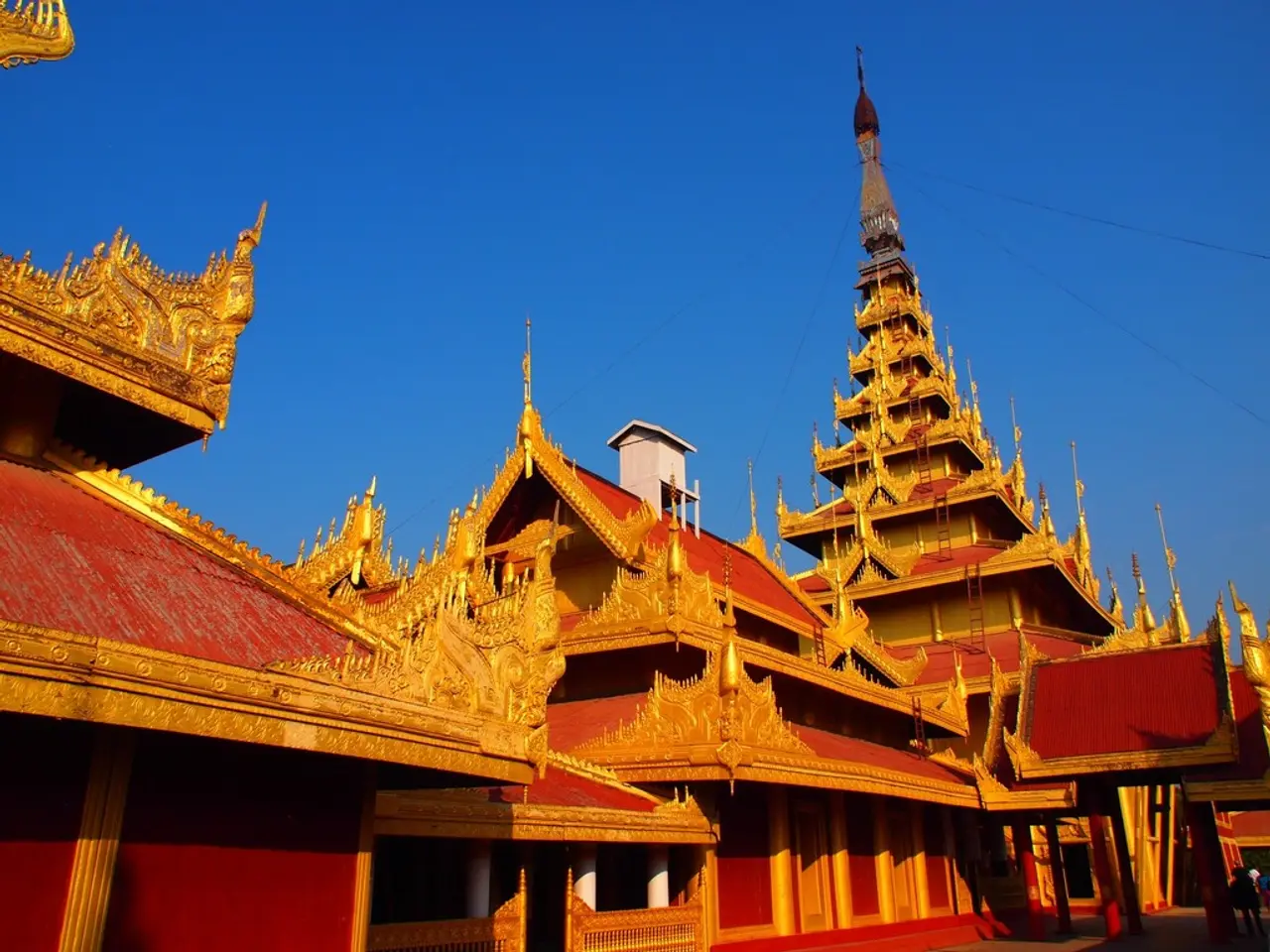Policies proposed by Prabowo are causing a mix of optimism and unease among Indonesians
In a significant move, President Prabowo launched Danantara, a sovereign wealth fund, to boost economic growth and manage state assets. The fund, which operates directly under presidential control, has been a key player in recent agreements with China, further strengthening economic cooperation between the two countries.
One such agreement was the investment agreement between Danantara and China Investment Corporation. This partnership is expected to bolster Indonesia's economic growth, but it has raised concerns about accountability, as national auditors are unable to provide oversight due to Danantara's unique structure.
The economic growth rate in the first quarter of the year was 4.87%, the slowest since the peak of the Covid-19 pandemic. To cut costs, the government has made significant reductions in healthcare spending (18.5%) and infrastructure investment (73%). These cuts have raised questions about the government's commitment to providing essential services and promoting economic development.
Indonesia, the world's third-largest democracy by population, has joined BRICS, becoming the first member from Southeast Asia. China contributes about 30% of the total income of the BRICS group. However, Indonesia's close ties with China may hinder its ability to navigate the U.S.-China rivalry in the region.
Indonesia's exports to the U.S. represent approximately 2% of its GDP. In response to potential U.S. tariff threats, the Prabowo administration is looking to diversify its trade partners. China, Indonesia's largest trading partner and a key source of foreign direct investment in 2024, has been a significant ally in this endeavour.
The use of local currencies for bilateral transactions is a significant move toward reducing dependence on the U.S. dollar. This shift, part of Beijing's Belt and Road Initiative, includes the rail service, a major infrastructure project.
The Asian Barometer Survey indicates that Indonesians often link democracy to effective governance and positive socioeconomic outcomes. However, only 7% of Indonesians value economic growth over democracy. This finding, coupled with concerns about the growing presence of military personnel in civilian sectors (69.5% of respondents in a March study by Kompas Litbang are worried about this), suggests a complex relationship between economic development and democratic values in Indonesia.
Despite these challenges, the democratic transition in Indonesia has set a regional example. The country maintains its independent foreign policy and has openly expressed interest in joining the Organisation for Economic Co-operation and Development (OECD). This ambition, if achieved, would further solidify Indonesia's position as a global economic powerhouse.
Read also:
- Lu Shiow-yen's Challenging Position as Chair of the Chinese Nationalist Party (KMT) Under Scrutiny in Donovan's Analysis
- Charity Golf Tournament Star-Studded Event: Lush greens, charitable giving, and a legendary castle setting
- Leading Africans Shaping Worldwide Positions by 2025
- Federalist Society Deserves Appreciation from Trump for Influence on Judiciary








